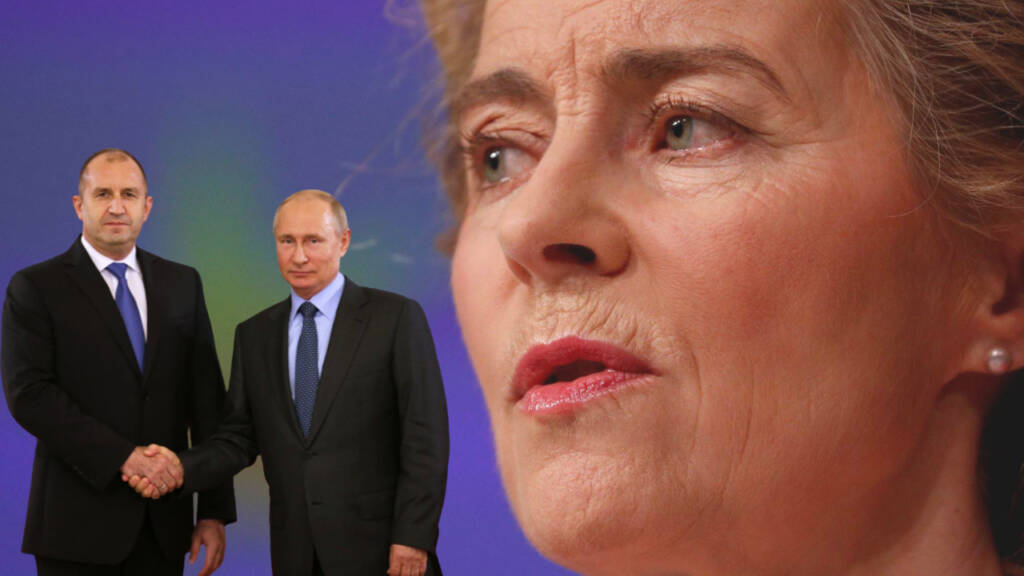In the context of the European Union’s Balkan concerns, it’s not solely Serbia that poses challenges; Bulgaria has also been a noteworthy issue for Brussels. Bulgaria’s President, Rumen Radev, openly expresses his affinity for Russia.
Notably, Bulgaria is heading to terminate its long-standing agreement with Russia’s Lukoil making Brussels happy. However, Brussels is missing a big point. Sofia is just opting for a fresh energy deal, backed by Russia, yet again.
In the coming weeks, Lukoil, Russia’s largest private oil corporation is poised to witness a significant shift in its operations in Bulgaria. Last month, Bulgaria’s parliament made a decisive move by voting to terminate Lukoil’s concession for the Rosenets oil terminal near the Black Sea port of Burgas. Lawmakers anticipate that this action will expedite Bulgaria’s entry into the European Union’s Schengen borderless area.
The bill received strong support from 144 out of 240 parliamentary deputies. It outlines that, following the concession’s termination, Lukoil will still be allowed to operate the oil terminal but will be required to pay fees to the Bulgarian government.
Additionally, the bill specifies that the concession will conclude within a week, signifying a significant change in the energy landscape of the region.
The Bulgaria-Lukoil Breakup
For the unaware, Lukoil casts an immense economic and political shadow over Bulgaria — but the energy major’s privileged position in the Balkan country is in growing danger. The EU’s oil sanction, which has benefited Lukoil’s Bulgarian branch, is set to expire by the end of next year. This will terminate the company’s unique and highly profitable ability to provide its extensive Neftochim refinery in Burgas, located on the Black Sea, with its cost-effective crude oil supply.
The future of the refinery appears bleak, as Viktor Katona, the lead crude analyst at market intelligence firm Kpler, predicts a big decline. Lukoil is grappling with the prospect of a diminished presence in Bulgaria, and ongoing discussions and negotiations are being conducted behind the scenes to address this complex situation.
However, under the leadership of Nikolai Denkov, Pro-EU parties are persistent in their efforts to expel Lukoil from Bulgaria, marking a significant victory for the European Union. For an extended period, Brussels has aimed to encourage member states to completely disengage from Russian energy sources.
Read More: Bulgaria’s Pro-Russia President is spoiling EU’s Bulgarian dream again and again
Radev Opposes the Plan
Historically, Bulgaria stood as a staunch opponent of this directive, primarily due to its heavy reliance on Russian crude oil. This dependency prompted Bulgaria to vehemently lobby for an exemption from EU sanctions concerning Russian oil imports.
Ultimately, Sofia secured a unique concession, permitting seaborne crude imports from Russia, while other nations received temporary allowances for pipeline oil purchases. Finance Minister Asen Vasilev played a pivotal role in EU negotiations, even resorting to a veto threat unless Bulgaria secured an exemption from oil sanctions. Now, Bulgaria is parting ways with Russian oil via Lukoil, but it has a backup plan already in place, once again involving Russia.
Despite Lukoil’s diminishing presence, it appears that Russian oil may have identified an alternative route into the Bulgarian energy market. The gas agreement between Turkey and Bulgaria is sparking concerns of increased Russian gas inflow into the EU.
Read More: Boom! Bulgarian Ammo Warehouses Explode Spoiling EU-Ukraine’s Sneaky Scheme
Plan B for Russian energy
Signed in January 2023, Bulgaria’s long-term deal with Turkish state gas firm Botas gave it access to neighboring Turkey’s gas network and liquefied natural gas (LNG) terminals to help bring in supplies. The proposal was lauded by President Rumen Radev himself. The new reformist government strongly opposes the signed deal and has initiated an official inquiry, although the agreement remains in effect for now.
According to terms seen by POLITICO but not publicly disclosed, Bulgaria’s state-owned gas company Bulgargaz can annually import 1.85 bcm of gas through the Strandzha-Malkoclar interconnection border point with Turkey.
Turkey’s well-established energy ties with Russia are widely recognized. Despite President Recep Tayyip Erdogan’s stature in the NATO alliance, he and Russian President Vladimir Putin are collaborating to position Turkey as a gas hub for Russian energy exports, signifying a complex energy and geopolitical landscape.
And so, the EU faces a daunting conundrum, as lacks certainty about the origin of Turkish gas, potentially linked to Russia through the TurkStream pipeline beneath the Black Sea. Bulgaris’s agreement ominously flings open the door for Russian gas to infiltrate the EU’s energy landscape.
Read More: Bulgaria stands against EU’s attack on Russian nuclear energy
The EU’s aspiration to sever ties with Russia has encountered resistance from member states still reliant on Russian energy. Rumen Radev’s clandestine pact with Turkey now looms ominously on Brussels’ radar. Bulgaria’s abandonment of Russia appears to be a curious twist in this already tense Russian energy drama.
Watch More:
